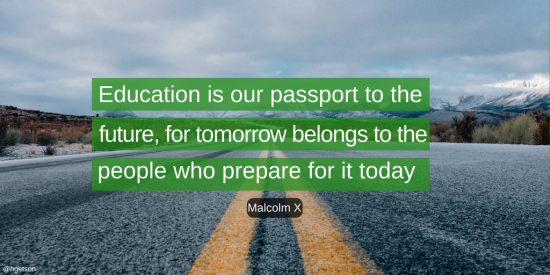 It seems like more and more of my peers have found paths to their success in the unconventional routes. The zeitgeist is shifting away from traditional education and it has many people doubting the need for a secondary degree.
It seems like more and more of my peers have found paths to their success in the unconventional routes. The zeitgeist is shifting away from traditional education and it has many people doubting the need for a secondary degree.
Ultimately, many of my peers would argue that traditional education methods currently prioritize memorization and performance on standardized tests degree functional real-world knowledge that helps you make and keep a living.
You'd expect a valedictorian to disagree or defend his education, but this 2016 Valedictorian went a different route.
His speech starts:
"As much as I would like to say that I was chosen because of my hard work, dedication, and intellect … I would be far from truthful in doing so, as I have met and studied alongside individuals more diligent and talented than myself in the past 4 years.
Here is the full speech:
Unfortunately, today, the climb towards the upper quartiles of education is more like playing a game than striving to learn, and lower quartile students have very little reason to apply and better themselves. For teachers, funding is based on grades and standardized tests, which encourages rote memorization. For students, success is meeting or exceeding minimum standards.
I loved my college experience and felt I learned a lot, but did I learn because of the educational system or because I'm someone who is passionate about learning?
In the past, universities were the only path to knowledge, but online educational methods like Youtube, Udemy, Coursera, etc. make information and education accessible to everyone.
Degrees aren't as helpful in obtaining jobs and they're not the only path to being successful or educated … so what role do they play?
Personally, I still believe a College degree is valuable – especially as you talk about B.S. and graduate degrees. I also feel it's less of a necessity, today, than ever before. I don't doubt the value of education as an ideal – and think everyone would benefit from being more educated – but there's a difference between "education" and "an education."
What do you think it would take to increase the value of "an education" both to students and to the workforce?

Leave a Reply